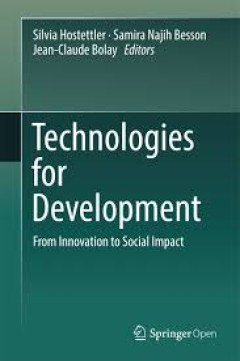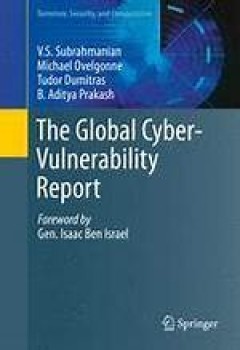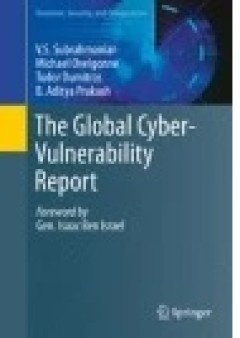Filter by

Technologies for Development
This open access book presents 18 case studies that explore current scientific and technological efforts to address global development issues, such as poverty, from a holistic and interdisciplinary point of view, putting actual impacts at the centre of its analysis. It illustrates the use of technologies for development in various fields of research, such as humanitarian action, medical and inf…
- Edition
- -
- ISBN/ISSN
- 9783319910680
- Collation
- -
- Series Title
- -
- Call Number
- -

Heterogeneous agent systems
Software agents are the latest advance in the trend toward smaller, modular pieces of code, where each module performs a well-defined, focused task or set of tasks. Programmed to interact with and provide services to other agents, including humans, software agents act autonomously with prescribed backgrounds, beliefs, and operations. Systems of agents can access and manipulate heterogeneously s…
- Edition
- -
- ISBN/ISSN
- 9780262284561
- Collation
- 1 online resource (xiv, 580 pages) : illustrations
- Series Title
- -
- Call Number
- 001 SUB h

We are not usersdialogues, diversity, and design
A call to reclaim and rethink the field of designing as a liberal art where diverse voices come together to shape the material world. We live in a material world of designed artifacts, both digital and analog. We think of ourselves as users; the platforms, devices, or objects provide a service that we can use. But is this really the case We Are Not Users argues that people cannot be reduced to …
- Edition
- -
- ISBN/ISSN
- 9780262356473
- Collation
- 1 online resource (200 pages).
- Series Title
- -
- Call Number
- -

The Global Cyber-Vulnerability Report
This is the first book that uses cyber-vulnerability data to explore the vulnerability of over four million machines per year, covering a two-year period as reported by Symantec. Analyzing more than 20 billion telemetry reports comprising malware and binary reputation reports, this book quantifies the cyber-vulnerability of 44 countries for which at least 500 hosts were monitored. Chapters…
- Edition
- 1
- ISBN/ISSN
- 978-3-319-25760-0
- Collation
- XII, 296, 1 b/w illustrations, 398 illustrations in colour
- Series Title
- Terrorism, Security, and Computation
- Call Number
- -

The Global Cyber-Vulnerability Report
The Global Cyber-Vulnerability Report targets researchers and professionals including government and military workers, policy-makers and law-makers working in cybersecurity or the web intelligence fields. Advanced-level students in computer science will also find this report valuable as a reference.
- Edition
- -
- ISBN/ISSN
- 978-3-319-25760-0
- Collation
- XII, 296
- Series Title
- Terrorism, Security, and Computation
- Call Number
- -
 Computer Science, Information & General Works
Computer Science, Information & General Works  Philosophy & Psychology
Philosophy & Psychology  Religion
Religion  Social Sciences
Social Sciences  Language
Language  Pure Science
Pure Science  Applied Sciences
Applied Sciences  Art & Recreation
Art & Recreation  Literature
Literature  History & Geography
History & Geography